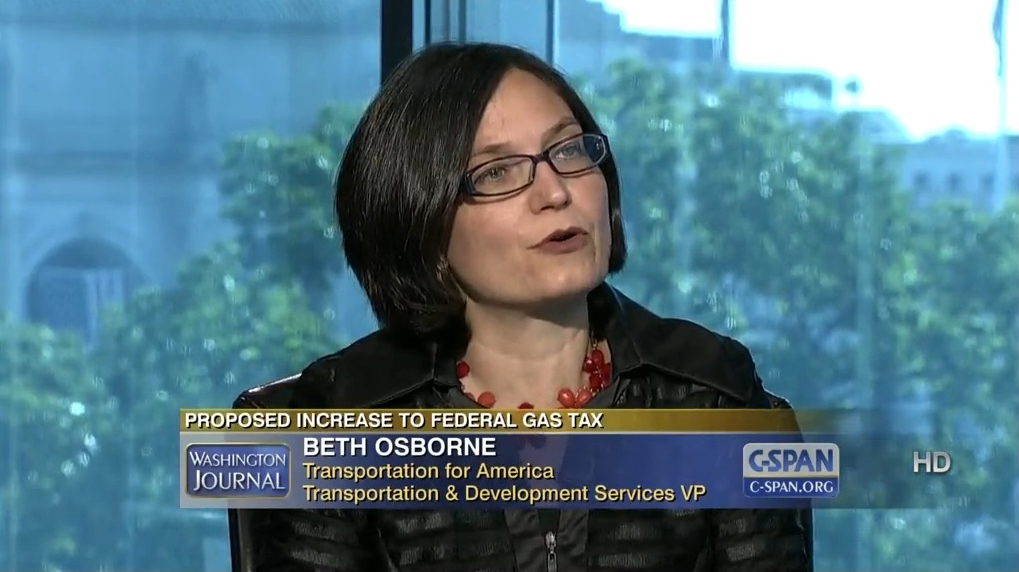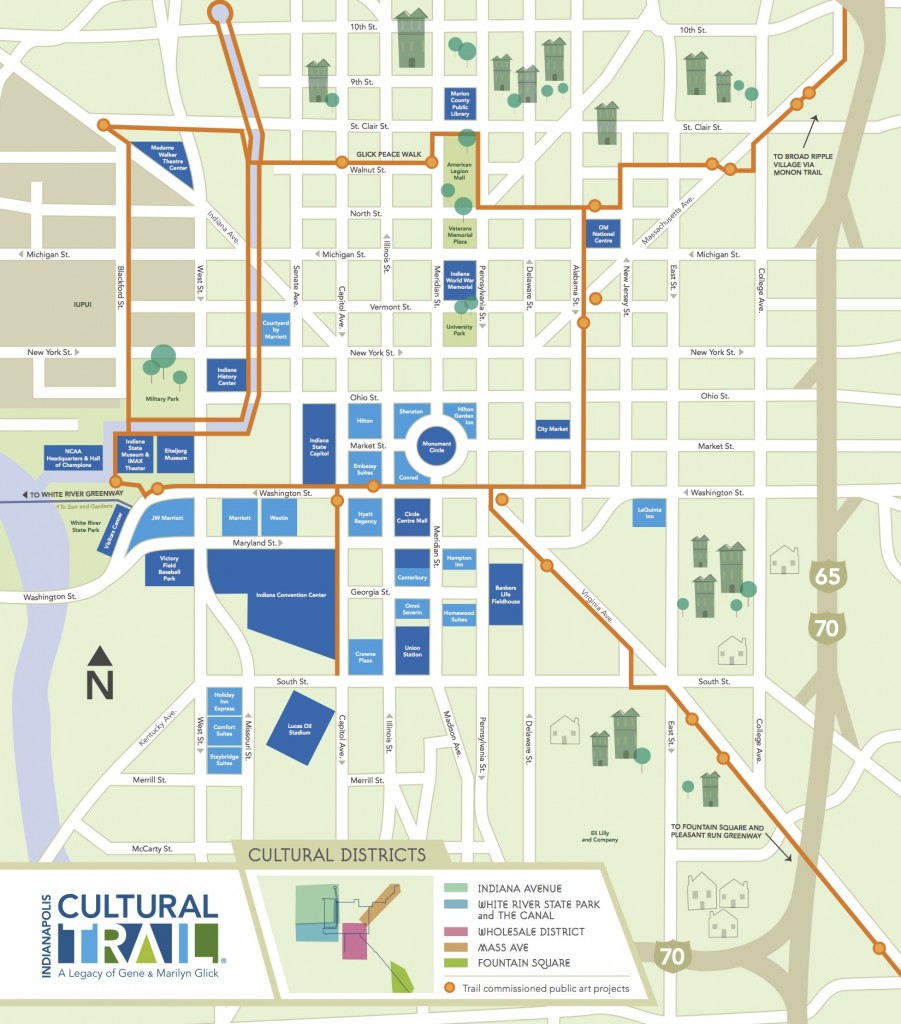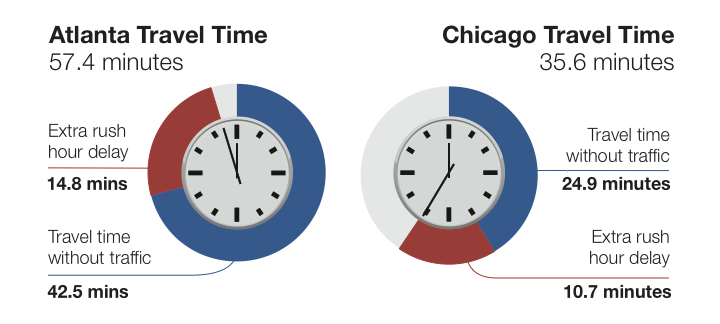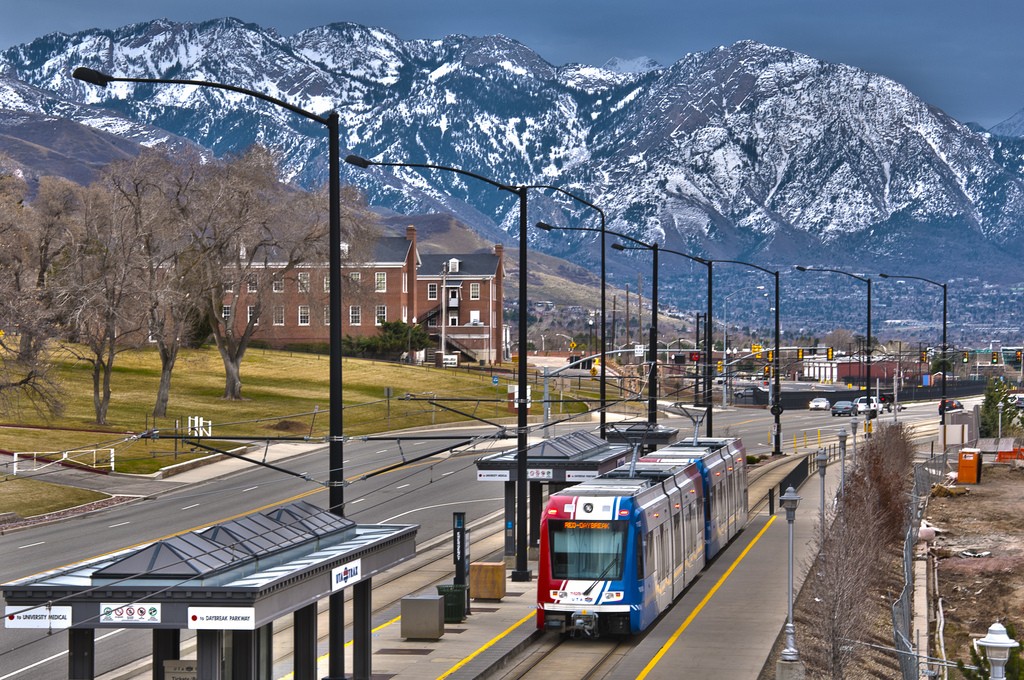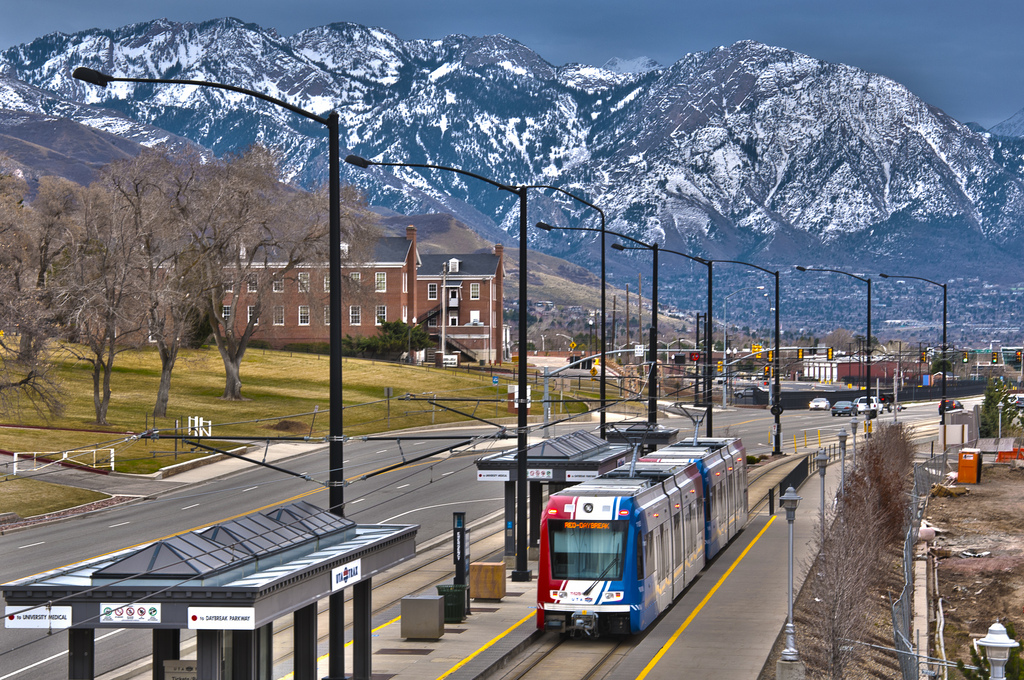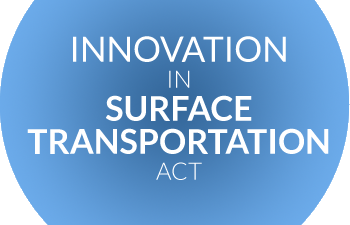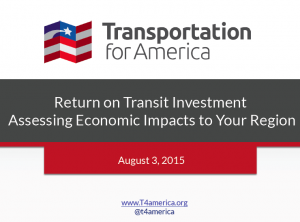Good afternoon. Here are a few curated stories we’re reading and talking about this week.
Members-only stories
“How Do We Become the Department of Yes?”
A new T4America member is hoping to successfully leverage the exploding landscape of new mobility options to meet more of their goals for encouraging smart development, reduce the amount of required single-occupant car trips and create a better city for tomorrow along the way. (This was posted
Diving into performance measures with T4’s resident expert
Feel a little lost when it comes to the concept of transportation performance measures? In the first post of a short series expressly for T4A members, Beth Osborne, T4A senior policy advisor, will help bring you up to speed with a high-level overview of the concept and a quick look at the current state of practice.
Don’t settle for the limited things Congress could agree on: Performance measures for members, part II
If states and metro areas don’t act now to establish their own priorities for their transportation system, they’ll end up only measuring what Congress deemed important in MAP-21. The time is now to start the conversation of what else also matters to the leaders and citizens in your area.
Stories from the T4A blog
New traffic congestion report raises more questions than it answers
Most people sitting behind the wheel each day won’t be surprised by the findings of the latest edition of the Texas Transportation Institute’s report on urban congestion that shows, once again, that (surprise!) the roads in most major American cities are very congested during rush hour each day. The report’s methodology is flawed, but what really matters most is what policymakers and citizens decide to do about congestion in their communities.
Indy’s “more is better” approach to transportation leads to new all-electric carsharing service
BlueIndy, a new all-electric carsharing service in Indianapolis launching today, is evidence of Mayor Greg Ballard’s open-minded approach to transportation innovations to improve options in the city for residents.
U.S. Surgeon General issuing a rare call-to-action to make walking safer & more convenient
The Surgeon General will issue a new call-to-action next Wednesday that focuses on encouraging cities and towns to design and build their roads and public places to make walking easier, safer and more pleasant.
Urban bike trails in cities like Indianapolis, Dallas and Atlanta are proving to have rich economic benefits to city neighborhoods
Affirming a trend seen in other cities, Indianapolis’s eight-mile Cultural Trail has been a boon to the neighborhoods adjacent to it — as well as the city as a whole — increasing property values of homes and businesses and giving residents and tourists a convenient, attractive, unbroken path to walk, bike and move around the city.
Phoenix voters approve a plan to raise money for transportation; vastly expand the city’s light rail and bus networks
From the T4A blog
On Tuesday night, voters in Phoenix, AZ, approved a slight increase in the sales tax to help fund a 35-year, $31.5 billion package to greatly improve and expand Phoenix’s light rail and bus systems, as well as other transportation improvements. The vote is further evidence that voters are willing to tax themselves for transportation — especially when they know what they’re getting.
Join T4A’s Beth Osborne in Portland and Seattle next week for talks on transportation and economic development
The three sessions will focus on how we can plan and develop our roads, transit systems and freight networks to bring the best possible economic returns. You will learn how regions across the country have made investment decisions and the results they achieved with regard to economic development and competitiveness.
Headlines
Poll: Most Americans back 10-cent gas tax hike
The Hill
The survey, conducted by the San Jose, Calif.-based Mineta Transportation Institute, comes as lawmakers are facing an Oct. 29 deadline for renewing federal infrastructure spending that has been the subject of debate in Washington for most of the year. Support for increasing the gas tax to 28 cents-per-gallon drops to 31 percent if the money is used to “maintain and improve the transportation system” instead of “improve road maintenance,” according to the group.
Obama admin: If Congress can pass a long-term transportation bill, there’s more transit projects where this one came from
The Hill
The Obama administration is touting the expansion of a light rail line in Sacramento, CA, that was extended 4.3 miles this week with the help of $142 million from the federal government. Federal Transit Administration (FTA) acting chief Therese McMillan said the new service “will significantly improve transit options for residents traveling between downtown Sacramento and the growing South Sacramento corridor.”
Uber’s Plan for Self-Driving Cars Bigger Than Its Taxi Disruption
Mobility Lab
The ride-hailing company has invested in autonomous-vehicle research, and its CEO Travis Kalanick has indicated that consumers can expect a driverless Uber fleet by 2030. Uber expects its service to be so inexpensive and ubiquitous as to make car ownership obsolete. Such ambitious plans could make its disruption of the taxi industry look quaint in comparison.
A model for transit-oriented revitalization in North Philadelphia
Better! Cities and Towns
“Paseo Verde is one of the most impressive transit-oriented development projects that I have seen anywhere in the United States,” says Michael Rubinger, President & CEO of Local Initiatives Support Corporation (LISC). “It’s a model for how urban revitalization should be done everywhere.”
America’s once magical – now mundane – love affair with cars
Washington Post
For nearly all of the first century of automobile travel, getting your license meant liberation from parental control, a passport to the open road. Today, only half of millennials bother to get their driver’s licenses by age 18. Car culture, the 20th-century engine of the American Dream, is an old guy’s game.
How Cities Can Shape Transportation Technology For The Greater Good
The Diane Rehm Show
That opportunity lies in two spheres. The first: Undo a half century of terrible planning decisions around one mode, the automobile, and remake our streets in favor of people, so they can safely walk, bike, play and live as close as possible to fundamental services and their work. The second: embracing technology as well as new business and operating models to more efficiently use the infrastructure and systems we already have and to better serve the public and its future.








 The system is launching with 50 vehicles and 25 charging stations (doubling as the reservable parking spots) around the city, with a plan to soon expand up to 500 electric cars and 200 stations. The city is paying $6 million in dollars earmarked for infrastructure projects, with the French company that owns the service investing somewhere over $40 million.
The system is launching with 50 vehicles and 25 charging stations (doubling as the reservable parking spots) around the city, with a plan to soon expand up to 500 electric cars and 200 stations. The city is paying $6 million in dollars earmarked for infrastructure projects, with the French company that owns the service investing somewhere over $40 million.